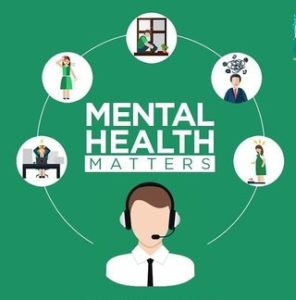Mental health plays a role in overall well-being. Even today there is a taboo associated with mental health and this taboo has to be broken with community awareness.


There is no health without mental health:
People commit suicide for many reasons and most of the time family members or friends may not be aware of or may ignore the reasons behind the suicide of their loved ones. When we closely look at the reasons for ‘suicide’ or ‘self-harm’ in most of the instances it could be due to uncured ‘mental illness’. This can prompt the person to take an extreme step in their life.
Mental health is an integral component of health. According to the World Health Organisation, “There is no health without mental health”. The mental health of a person includes his/her emotional, psychological, and social well-being. No matter which stage of life- childhood, adolescence, adulthood, middle age, and senior years we are in, mental health is important in all of these stages.
Even today there is a taboo associated with the discussion about mental health. The taboo has to be broken with community awareness to achieve progress in improving mental health.
Why mental health is important?


On the other hand, mental health is important as it has a direct relation to physical health. It can significantly increase the risk of physical health problems like heart diseases, stroke, and type 2 diabetes. It is a reality that people do not give the same importance to mental health as they give to physical health.
How can mental health play a role in overall well-being?
All of us must ask a question on how often do we think about our mental health which is very much needed for us to live and flourish? The answer in many cases may not be encouraging. This indicates that we have all have taken mental health for granted. Do not neglect your mental health and let this be on your priority as it directly affects your well-being.
Simple tips to maintain good mental health:


2. Be active and fit. Exercise regularly
3. Connect with others. Speak to your family members and friends regularly.
4. Learn to handle stress. Meditate regularly to control stress. Develop hobbies like gardening, cooking, listening to music to manage stress.
5. Be confident. Learn something new every day.
6. Do not try to imitate others, be comfortable always.
7. Never set unrealistic targets for yourself. It might lead to disappointments
8. Eat well and consume healthy food.
9. Devote time to things that bring joy to you.
And at last, do not feel shy to reach out to help when you need it. It’s okay to be not-okay but it’s not okay despite being not-okay you are not seeking the help.


Dr.Pallavi Arvind Joshi
Consultant – Psychiatrist,
Columbia Asia Hospital
Whitefield – Bengaluru











